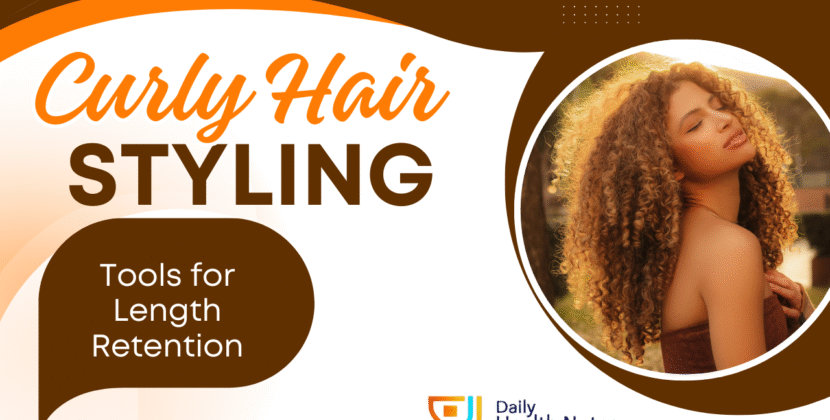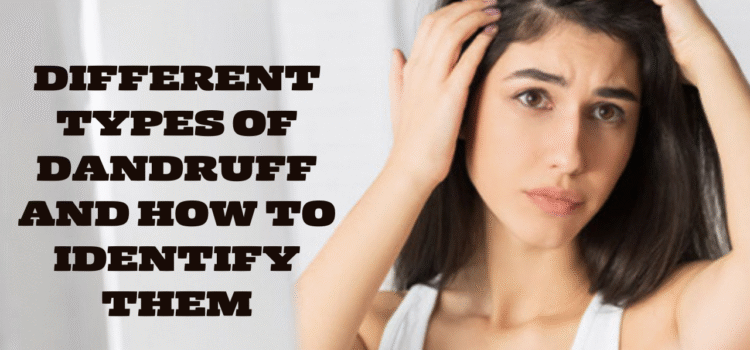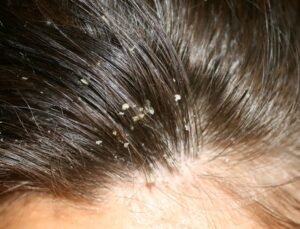
Different Types of Dandruff and How to Identify Them
Dandruff is a common scalp condition that affects millions of people across the United States. Although often seen as a minor cosmetic issue, it can lead to itchiness, flaking, scalp irritation, and even impact self-confidence. If you’ve ever noticed white or yellow flakes on your clothes or experienced a persistently itchy scalp, you’ve likely dealt with dandruff in some form.
But did you know that not all dandruff is the same? Understanding the different types of dandruff is key to finding the right treatment and restoring your scalp health. In this guide, we’ll explore the causes, symptoms, and treatments for each type of dandruff so you can better identify and manage your condition.
🧠 What Exactly Is Dandruff?
Dandruff refers to the shedding of dead skin cells from the scalp, often in the form of visible flakes. This process is a normal part of skin renewal, but when it becomes excessive or irregular, it can lead to noticeable flaking, itching, and discomfort.
💡 Common Causes of Dandruff:
- Dry or oily scalp
- Overgrowth of fungus, particularly Malassezia
- Product buildup from hair styling products
- Skin conditions like eczema or psoriasis
- Sensitivity to ingredients in shampoos or hair products
Understanding the underlying cause of your dandruff is essential for choosing the right treatment approach.
🔍 Types of Dandruff and How to Spot Them
Let’s take a closer look at the various types of dandruff, how to identify them, and what sets them apart.
1. Dry Scalp Dandruff
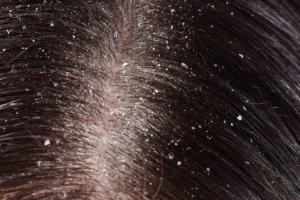
Symptoms:
- Small, fine white flakes
- Tight, dry, or itchy scalp
- Worse in colder or dry climates
Visual Clues:
The flakes are dry and fall easily from the scalp or hair. There’s often no redness or oiliness, and the scalp may feel tight or sensitive.
2. Oily Scalp Dandruff (Seborrheic Dermatitis)
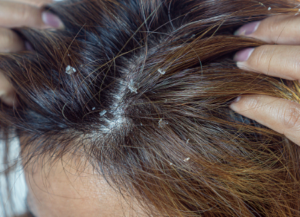
Symptoms:
- Greasy, yellowish flakes
- Red, irritated scalp
- Itchy, inflamed patches
Visual Clues:
Flakes appear larger and oilier, often clinging to hair strands or forming crusts. The scalp may also look shiny or inflamed.
3. Fungal Dandruff
Symptoms:
- Intense itching
- Flakes similar to oily dandruff
- May worsen in warm, humid conditions
Visual Clues:
Often hard to distinguish from oily dandruff, this type results from the overgrowth of a yeast-like fungus called Malassezia. It may improve with antifungal shampoos.
4. Product Buildup Dandruff
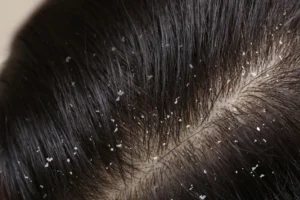
Symptoms:
- Itchiness and flakes after using certain hair products
- Dull or waxy scalp
- Flakes feel sticky or dense
Visual Clues:
This type occurs when excess hair products—like dry shampoo, mousse, or gel—build up on the scalp, mimicking dandruff symptoms. Flakes may disappear after clarifying washes.
5. Psoriasis-Related Dandruff
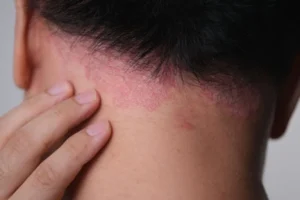
Symptoms:
- Thick, scaly, silver-gray patches
- Painful or itchy areas
- May extend beyond the hairline
Visual Clues:
Unlike regular dandruff, this type results from scalp psoriasis, a chronic skin condition. The flakes are larger, denser, and more inflamed, sometimes bleeding or cracking.
🧪 How to Identify Your Dandruff Type
Not sure what you’re dealing with? Use this guide to narrow it down:
| Symptom | Likely Dandruff Type |
| Fine, dry flakes | Dry scalp dandruff |
| Greasy, yellow flakes | Oily dandruff or seborrheic dermatitis |
| Itchy scalp with white flakes that respond to antifungal shampoo | Fungal dandruff |
| Flakes after using heavy styling products | Product buildup |
| Thick, painful scales | Psoriasis-related dandruff |
If symptoms are persistent or painful, consider seeing a dermatologist for an accurate diagnosis and personalized treatment.
💊 Best Dandruff Treatments by Type
Once you’ve identified the type of dandruff you have, you can choose the most appropriate remedy. Here are the best treatments for each:
✔️ For Dry Scalp Dandruff:
- Moisturizing shampoos with natural oils (e.g., coconut oil, argan oil)
- Avoid hot water while washing your hair
- Home remedies: Aloe vera gel or warm oil scalp massages
✔️ For Oily Dandruff (Seborrheic Dermatitis):
- Medicated shampoos with zinc pyrithione, selenium sulfide, or ketoconazole
- Avoid overwashing as it may overstimulate oil glands
- Home remedies: Tea tree oil diluted with a carrier oil
✔️ For Fungal Dandruff:
- Antifungal shampoos (e.g., ketoconazole-based)
- Keep scalp dry and avoid oil-heavy products
- Maintain scalp hygiene with regular cleansing
✔️ For Product Buildup:
- Use a clarifying shampoo once a week
- Reduce use of heavy styling products
- Try a baking soda rinse once in a while (not daily)
✔️ For Psoriasis-Related Dandruff:
- Prescription treatments (topical corticosteroids, medicated shampoos)
- Look for shampoos with coal tar or salicylic acid
- Avoid scratching to prevent infection
🧼 Tips to Maintain Scalp Health
Keeping your scalp healthy is key to preventing dandruff recurrence. Follow these general tips:
- Choose hair products suited for your scalp type
- Wash hair regularly, but don’t overdo it
- Eat a balanced diet rich in omega-3s and antioxidants
- Drink plenty of water to stay hydrated
- Avoid stress, which can trigger or worsen some scalp conditions
✅ Final Thoughts
While dandruff is a common issue, it doesn’t have to be a permanent one. By learning about the different types of dandruff and how to identify them, you can take the right steps toward achieving a healthier, flake-free scalp. Whether it’s a dry scalp, fungal growth, or product buildup, proper treatment makes all the difference.
If symptoms don’t improve with home care, don’t hesitate to consult a dermatologist for tailored advice. Your scalp health deserves the same attention as the rest of your body—and it starts with knowing what you’re dealing with.
❓ FAQs
- Can dandruff go away on its own?
Mild dandruff may resolve temporarily, but recurring dandruff often requires targeted treatment and proper scalp care. - Is dandruff contagious?
No, dandruff is not contagious. It’s typically caused by individual scalp conditions, not by direct contact. - Can stress cause dandruff?
Yes, stress can trigger or worsen dandruff by weakening the immune system and increasing oil production. - Is dandruff worse in winter?
Yes, dry indoor air and cold temperatures can worsen dry scalp dandruff, making flakes more noticeable. - Should I stop using conditioner if I have dandruff?
Not necessarily. Choose a lightweight, non-comedogenic conditioner, and avoid applying it directly to the scalp.


